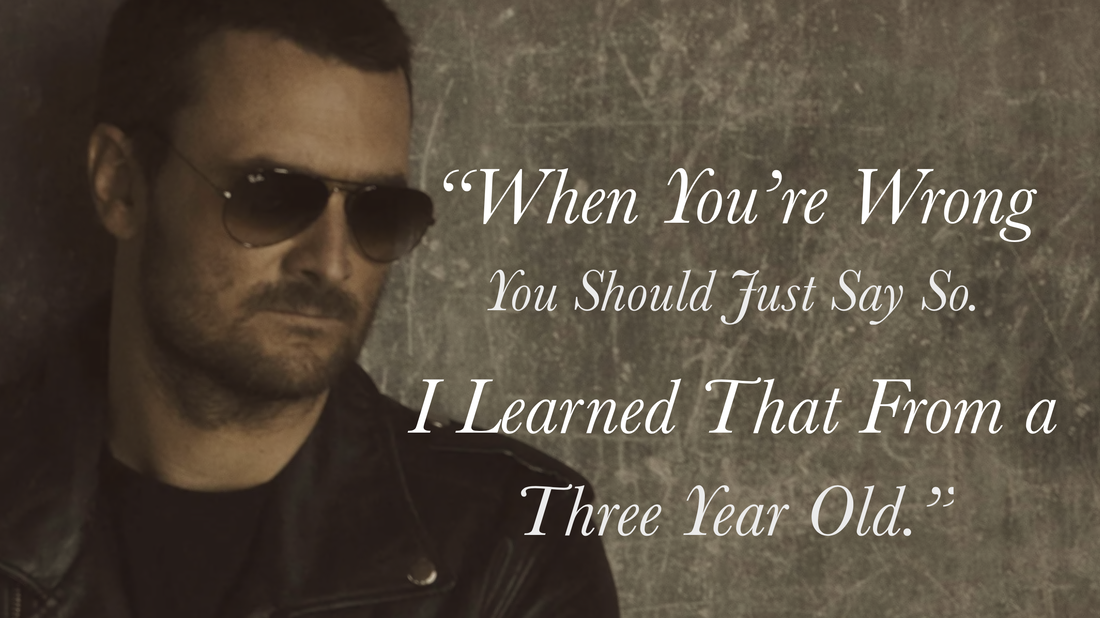 Apologizing… The art of saying we’re sorry for the mistakes we’ve made and the wrongs we create. Poetic...I know. Hold that thought, tho, as we’ll be coming back to that line. First, let’s answer the question- “Can you ever apologize too much?” Well, yes. Actually, hell yes. In fact, it’s extremely common. It’s often one of the most lopsided behaviors between two individuals in a meaningful relationship. Not just intimate, either. How often do you apologize to your child? Your boss? Is it split 50/50 between you and your spouse? Highly unlikely. While it’d be nice to have an even split, all relationships have a power dynamic in which apologizing is part of. I’ll even let you in on a little foreshadowing. Within this dynamic it can be a point of great strength, weakness, and even manipulation. That’s because of one simple fact. We most often apologize because of how the other person reacts, not what we actually believe. Now, some of you might be thinking, “Jeff, isn’t that the whole damn point of saying sorry? Literally because we hurt the other person?” Well let me ask you this? Back in the good ole days of playground dodgeball, were you ‘really’ sorry for pelting that kid with a cheap shot who’s been a d*ck to you every day at lunch? Or did you think they deserved it? Either way, you likely apologized because the teacher told you to. (If you never behaved like this just change the ‘yous’ to ‘Jeff’…take comfort in being a better kid than I and relate it to something else in your childhood.) In this example we learn as children to apologize in order to keep the peace. On the flipside, the bully might get the principle’s office every now and then, but they ain’t saying sorry. Unless…it’s for their own benefit. Aka manipulation. Time to roll the clock forward to present day adulthood. If you are the apologizer, how often do you find yourself doing it to keep the peace? How many times do you say it without believing it?
If you are at the other end of the spectrum, why aren’t you apologizing? There’s very strong data that can predict who will fall into which category, so be real with yourself. Now, with an honest look in the mirror, are there ever instances you apologize for pure self-gain? To protect your reputation, earn a reward, or avoid a negative consequence? Press pause for a minute and think about this. Then proceed. Good? Let’s roll right into the golden question. The reason you’re here. When should we apologize? It’s simple. Apologize when you believe you have done something against your own moral code. Not predicated on any external prompt. When should we not apologize? You truly believe your behavior has not violated your own moral code. Be aware of internal justification…just saying. What should you do when someone is upset with and they are a person you care about or is in an authoritative position? A bit more nuanced. Try this. Ask open-ended questions from a place of sincere curiosity. Let’s wrap this up there and dive into the nuances, the consequences and more specific scenarios another day. Till then, remember this- Apologize for our actual mistakes, not the ones we (or let others) create. Told you to hold onto that quote from earlier. 😉 Jeffrey Allyn-Hanson “If you’re wrong you should just say so, I learned that from my three year old.” - Eric Church Comments are closed.
|
Jeff Hanson, Founder Archives
January 2024
Categories |
|
|



 RSS Feed
RSS Feed




